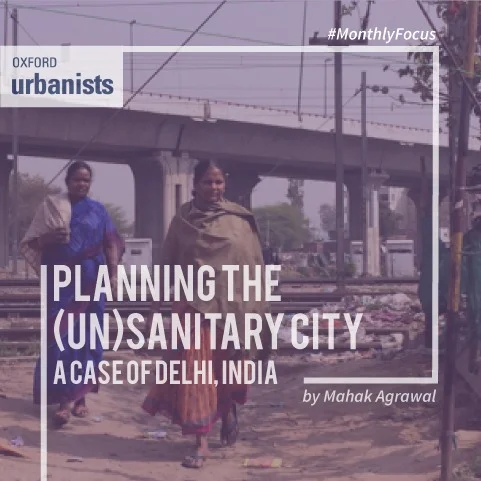What amounts to a ‘good’ coronavirus policy and timeline? Who is Andrew Cuomo, and how has his response evolved? And, ultimately, how well does his response and the underlying values match what New Yorkers need?
Read MoreThe pandemic has hit Chile at a particularly pivotal moment for the country, as it found itself immersed in a quasi-refoundational process initiated after the 18th of October (18-O) protests, when levels of social cohesion are dramatically low.
Read MoreThe ‘Clean India Mission’ turned five this last October, and notable successes have been made. But what does ‘progress’ mean in the COVID-19 pandemic? In this article, two case studies — Kolkata and Delhi — will demonstrate how the module works, and what it could mean to fight the viral outbreak.
Read MoreWhile the government intends to take stricter measures in Delhi to decrease not only the contribution of Delhi to climate change (mitigation), but also, the impacts of climate change in Delhi (adaptation), it is vital that Delhi must create a reality where both top-bottom and bottom-up approaches are allowed to achieve a livable city for future generations.
Read MoreOne of the most yawning gaps, however, in India’s climate action plan, which can be observed across the world as well, is the lack of a local climate action framework; the grand plans at the national level rarely trickle down to concrete steps at the regional level, where there can be real tangible change. Nonetheless, this absence of a ‘rule book’ at the smaller scale has led to an interesting turn of events in India: increasing local action as a result of the city’s interests and the rise of eco-citizens.
Read MoreAs COP 25 opens its doors in Madrid this week, I would like to highlight that climate summits are no longer only about the 13th Sustainable Development Goal (SDG): “climate action.” Rather, they most now encompass all of the United Nation’s global goals in order to be successful.
Read MoreSince the last decade, urban and peri-urban agriculture has been designated by the Food and Agriculture Organization of the United Nations (FAO) as a fundamental strategy to provide means of subsistence, Following this trend, since 2006, Rio de Janeiro’s City Hall has been developing the Hortas Cariocas Program (PHC), aiming to encourage urban agriculture, and extract the various social and environmental services inherent to the practice. Inside an urban scenario of extreme inequality, legitimized by the public powers for centuries, we discuss how the Hortas Cariocas Program, with the efforts of its founders, contributes in a practical way to the improvement of the quality of life to the citizens of Rio.
Read MorePlanning for Delhi’s sanitation networks is a complex matter. Its systems, development, operation and maintenance involve multiple agencies at all scales. The scope of sanitation has expanded, but emphasis remains on increasing treatment capacity and extending the modern sewerage network. But where do we plan for the sanitary conditions of informal settlements, not connected by this modern network?
Read MoreUrbanites seem to have found in Micromobility what could be one of the biggest solutions of the century for urban mobility. With an industry breaking sales and growth records, the adoption of micromobility solutions seems to not have a ceiling. While significant advances have occurred in the industry, micromobility is still not an option for the urban poor around the world. It will take active governance and responsive regulation to persuade private companies to align with the UN’s mandate in SDG 11
Read MoreAn interview with urban planner Andrés Linares, who has taken part in the reconstruction of a town affected by a natural disaster and in the planning of Bogotá’s urban expansion.
Read More



